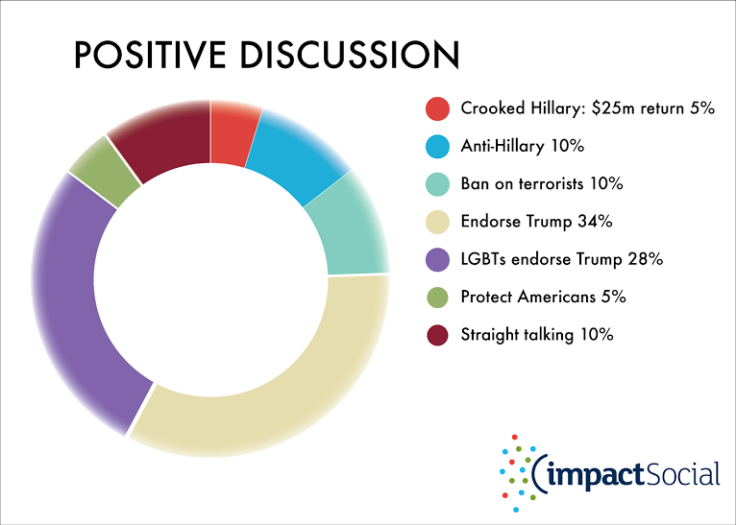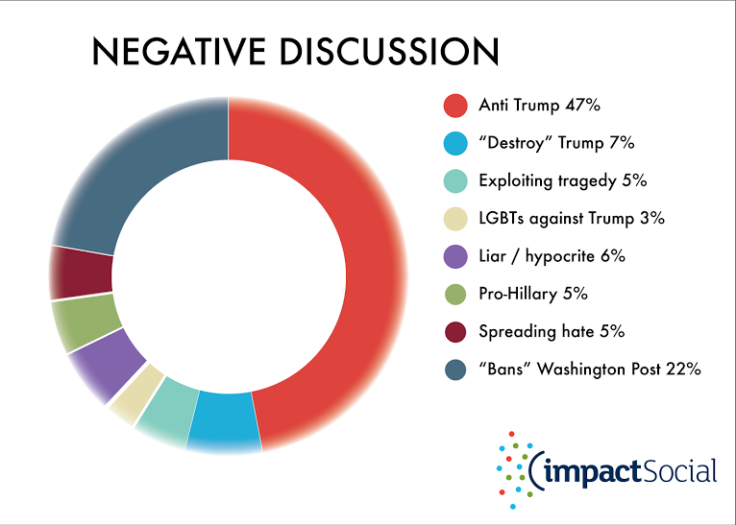Donald Trump's reaction to Orlando shootings and the response from his supporters
We were supposed to be enjoying a different kind of politics. Digital technology, especially social media, was going to change the relationship between politicians and citizens.
The transparency and the accountability of this brave new world were going to ensure that no politician dared lie to us again as we acted as an army of fact-checkers; our leaders' arguments would be held up to the wisdom of crowds; hypocrisy and contradiction would be exposed and empty rhetoric shown up. A new era of rigour would be ushered in as the digital citizen began to police our rulers.
Donald Trump has well and truly trashed that theory. How needlessly our politicians worried about this digital dawn. Instead Trump has emerged as the new PT Barnum, who realised a century ago that 'the public would be more excited by controversy than conclusiveness'. How little effect the exposure of all Trump's fact-light, consistency-free pronouncements has had.
The man's shameless embrace of controversy and his energetic willingness to offend has raised shocked voices all over new and traditional media. Digital citizens have pointed the finger and called him out as a charlatan – and The Donald doesn't care, because he knows it changes nothing.
Earlier this week, Trump made a speech in response to the Orlando shootings. Traditional media brands were concerned that the content of that speech had, as CNN put it, 'stretched facts'. In the expected model of digital media, this is where the accountability gets real and Trump's credibility gets shredded. [Not a bit of it.]
Social media analysis company Impact Social looked at 450,000 mentions of Trump in the 10 hours after his speech, on social media, forums and comments on open news platforms. They removed media commentary as a way of testing the wisdom of crowds rather than the wisdom of commentators. The data was measured from his point of view – positive and negative associations as they might be viewed from within his camp.
Reading the data from the perspective of Trump's campaign, they found – as you might expect – that emotions ran high. Positive or negative sentiment around Trump was clear from 60% of posts – a very high figure when many posters are content to simply narrate events, rather than comment on them. He's a binary figure.

Where Trump also succeeded was in focusing the discussion. He wanted to make the talk after Orlando to be about immigration and terrorism, and the supportive voices kept to the script – the NRA and the gun debate barely got mentioned in among the chat on a 'ban on terrorists' (10% of the positive chat – even if you suspect there already is such a thing), and calls to 'protect Americans' (5% of the chatter) and praise for Trump's 'straight talking' (10%). Trump's bluster might be empty rhetoric, but it's driving the conversation.

For Hillary Clinton, a candidate of the old school, all her supposed political instincts are simply not having the same impact with digital audiences. While anti-Trump sentiment is very high (at 47%), that division of audiences is already established and is not moving much.
Professional politicians may grow faint at such a figure, and at the fact that 7% of anti-Trump messaging want to 'destroy' him and a further 5% accuse him of exploiting the Orlando tragedy, but these people, the Donald knows, are lost to him already.
Instead, he would be heartened by the fact that the pro-Hillary conversations, even after the tragedy of Orlando, remain unfocused and, indeed, distracted, by Trump's run-in with the Washington Post, which picked up nearly a quarter of the conversation.
And perhaps that spat shows the irony of the direction of travel. Trump, a man for whom consistency and honesty are possibilities rather than commitments, has banned a newspaper of record for 'inaccuracy'.
The hypocrisy is exposed on the platforms that were supposed to replace newspapers as our truthtellers. Where we were hoping for a form of digital democracy, we've found, and Trump has fuelled, outrage – and that's a far more powerful tool.
© Copyright IBTimes 2025. All rights reserved.






















